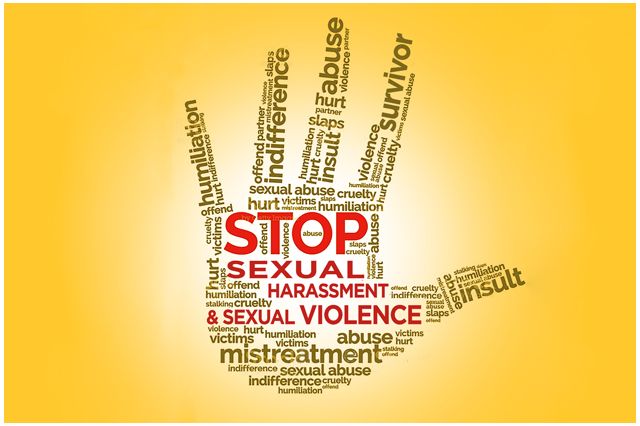RAISE YOUR VOICE AGAINST HARASSMENT!

More than half of women on social media have faced online harassment and abuse. Ahead of International Day of Girl Child on October 11, a Global Survey across 22 countries highlightthat 58 percent young women have faced online harassment or abuse on various social media platforms like Facebook, Instagram, Twitter and even TikTok.
A survey carried out by UK-based humanitarian organization Plan International, titled “State of the World’s Girls Report” involved 14000 women aged between 15-25 from 22 countries including India, Brazil, Nigeria, Spain, Australia, Japan, Thailand and the United States
It shows that one in five girls (19 percent) have left or significantly reduced the use of social media platforms after being harassed, while another one in ten (12 percent) have changed the way they express themselves. Nearly half of the girls targeted have been threatened with physical or sexual violence according to the poll.
The survey shows that attacks were more common on Facebook, where 39 percent of girls polled said they had been harassed followed by Instagram (23 percent), WhatsApp (14 percent), Snapchat (10 percent), Twitter (9 percent) and TikTok (6 percent). Many said the abuse took a mental toll and a quarter felt physically unsafe.
The percentage of affected women was similar from different regions around the globe. In Europe 63 percent of girls reported harassment, followed by 60 percent girls of Latin America, 58 percent in the Asia-Pacific region, 54 percent in Africa and 52 percent in North America, the report found out.
Ranging from threats of sexual violence to racist comments and stalking, online harassment of young women was directed in different manner. Of all the girls who have been harassed, 47 percent girls have been threatened with physical and sexual violence, while 59 percent faced abusive and insulting language online.
A large number from the minority and LGBTQ + communities said they were harassed because of their identities.
Despite the anonymity that social media provides, girls and young women do know something about their harassers. Harassment from strangers was more frequent and more frightening than from the people they knew.
“Girls are being silenced by the toxic level of harassment. Activists including those campaigning for gender equality and LGBTQ+ issues, were often targeted particularly viciously, and their lives and families threatened. Driving girls out from online spaces is hugely disempowering in an increasingly digital world, which also damages their ability to be seen, be heard and become leaders,” said Anne-BirgitteAlbrectsen, Plan International’s Chief Executive.
The abuse and harassment faced online also affects life outside social media. A total of 42 percent women registered mental or emotional stress, whereas, the same percentage of respondents accepted decrease in self-esteem and confidence because of online harassment.
“While 11 percent of the surveyed women were harassed by a current or former partner, 21 percent pointed towards friends and 21 percent knew their harasser from school or work,” it said.
In addition to the report, an open letter to Facebook, Instagram, TikTok and Twitter is written by girls from around the world who called on social media companies to create more effective ways to report a abuse. “We use (your platforms) not just to connect with friends, but to lead and create change. But they are not safe for us. We get harassed and abused by them. Every. Single. Day,” they wrote. “As the global pandemic moves our lives online, we are at more risk than ever.”
The sad part is, Sexual Harassment is still with us! We need to learn how to recognize and curb dubious behaviors in ways that it doesn’t affect our mental health.
Don’t stay silent, Raise your Voice. Be Confident! Be Bold!